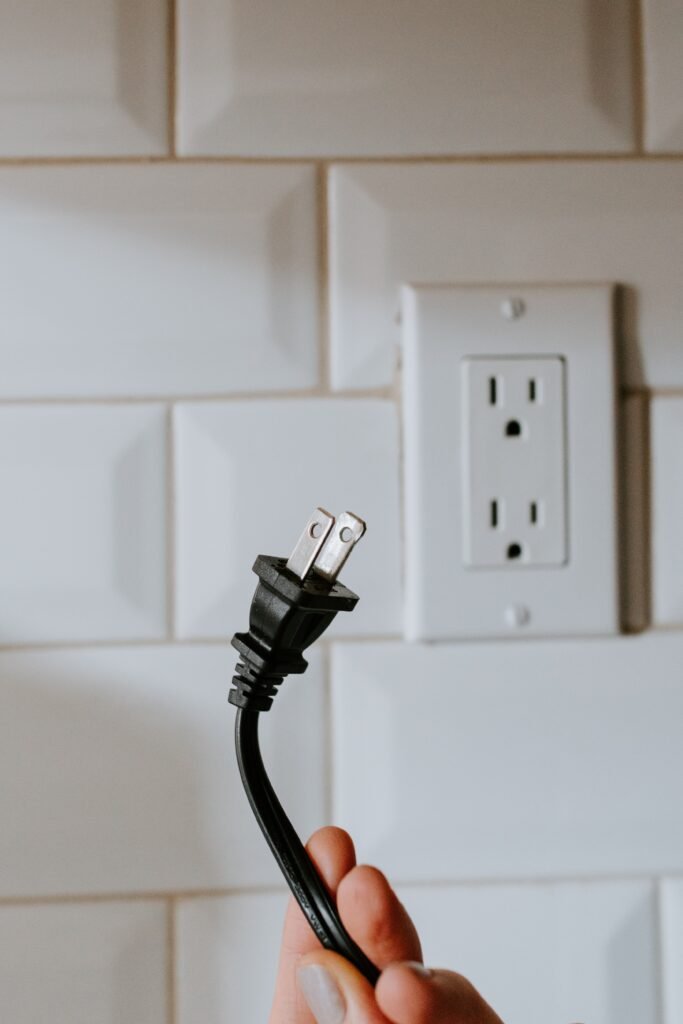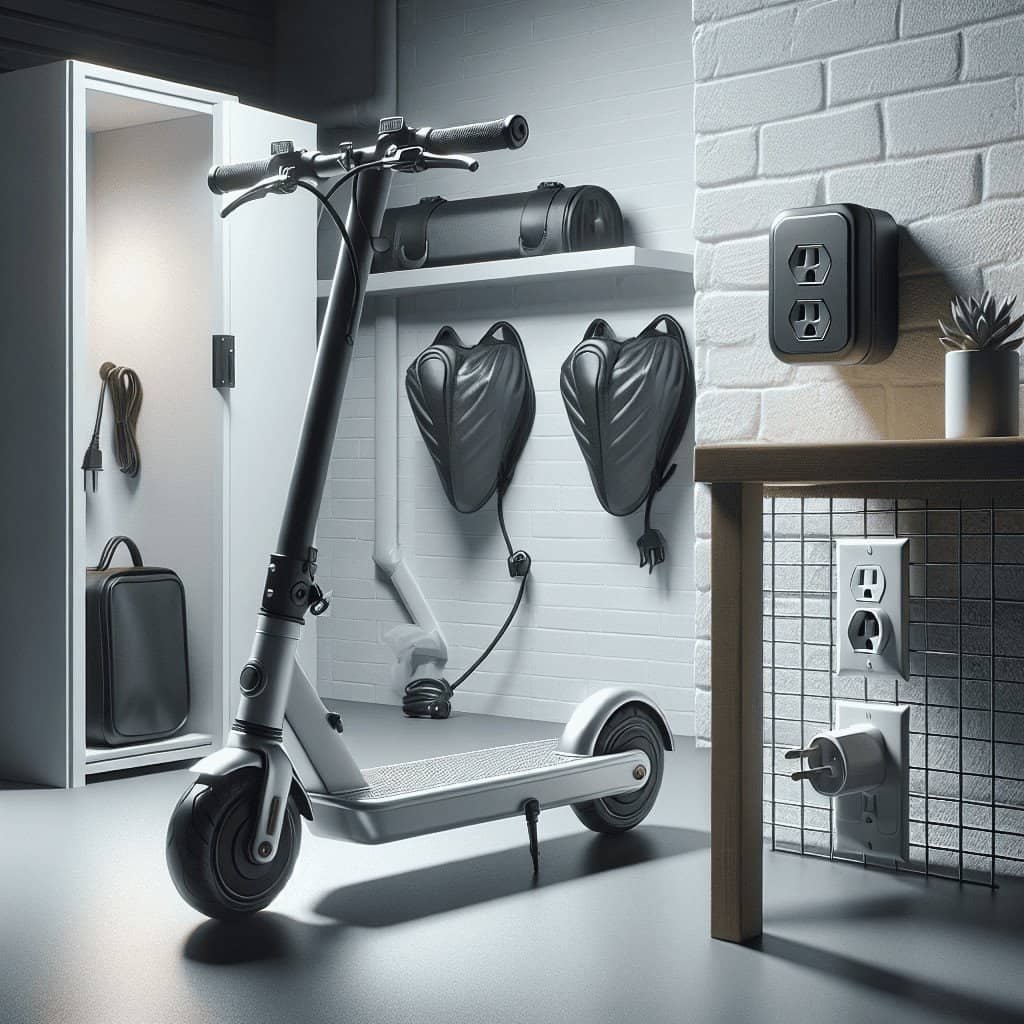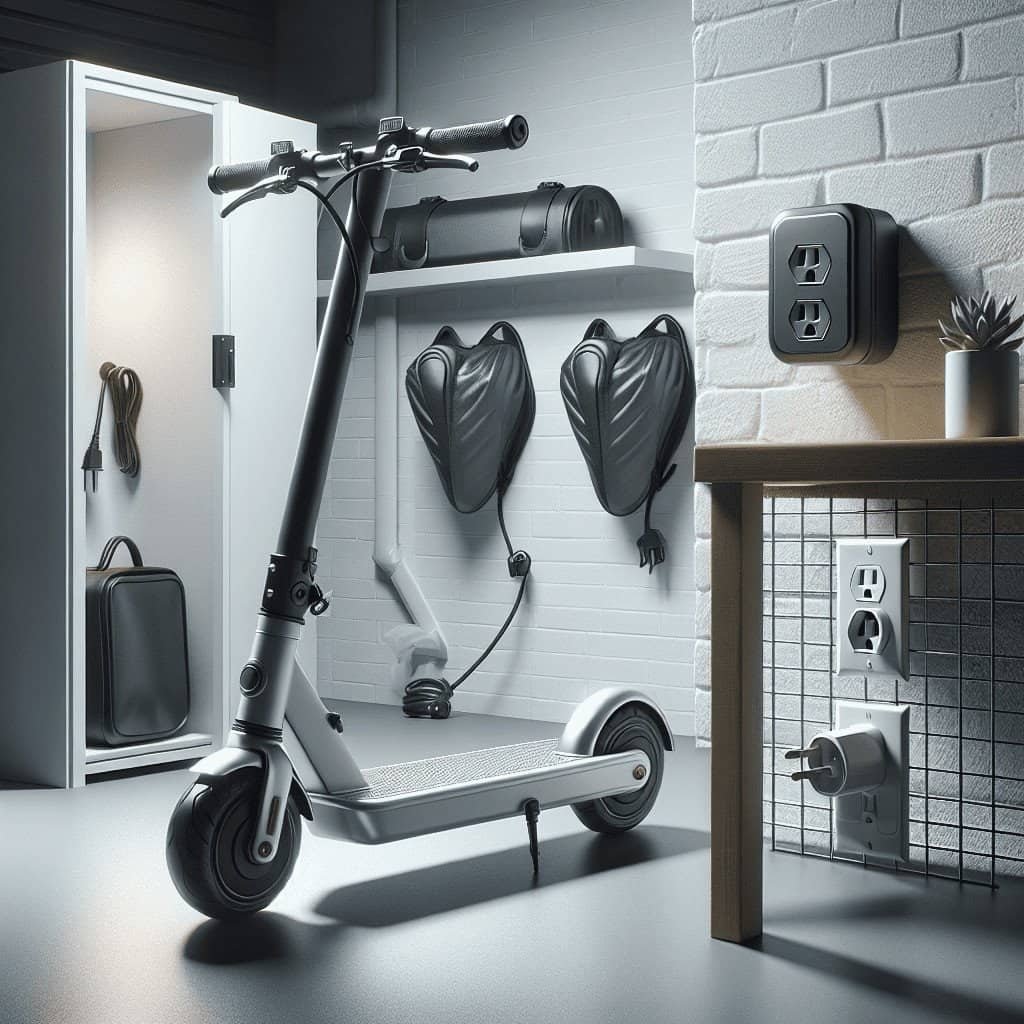You’ve recently purchased an electric scooter and now find yourself wondering how to properly store it for an extended period. Whether it’s due to seasonal changes or simply not needing to use it for a while, taking the right steps to store your scooter can ensure it remains in optimal condition for when you’re ready to hit the road again. In this article, we’ll explore some helpful tips and techniques to guide you in safely storing your electric scooter, keeping it protected and ready for your next adventure.
Choosing the Storage Location
When it comes to storing your electric scooter for an extended period, one of the first things you need to consider is the storage location. There are two main options to choose from: indoor storage or outdoor storage.
Indoor Storage
Indoor storage is the preferred option for most scooter owners. It offers protection from the elements, reducing the risk of damage caused by rain, sunlight, or extreme temperatures. If you have a garage, basement, or any other enclosed space, it can serve as an excellent storage area for your scooter.
Outdoor Storage
If you don’t have access to indoor storage options, you may need to consider outdoor storage. However, it’s important to note that outdoor storage exposes your scooter to various weather conditions which may deteriorate its condition. If you have no other choice but to store your scooter outdoors, make sure it is properly covered and protected from direct sunlight, rain, and other elements. It’s also a good idea to invest in a sturdy lock to deter theft.
Preparing the Scooter for Storage
Before storing your electric scooter, it is crucial to prepare it properly. This will help maintain its condition and ensure it’s in good shape when you’re ready to use it again.
Cleaning the Scooter
Start by giving your scooter a thorough cleaning. Use mild soap and warm water to wash away any dirt, grime, or debris. Pay special attention to the wheels, brake pads, and other areas that tend to accumulate dirt. Once you’ve cleaned the scooter, make sure to dry it properly to prevent any moisture-related issues during storage.
Checking Batteries
Batteries are a critical component of your electric scooter, so it’s important to check their condition before storage. Start by fully charging the batteries, ensuring they’re at their maximum capacity. This helps prevent battery degradation during storage. Additionally, if you’re storing your scooter for an extended period, it’s a good idea to periodically charge the batteries to prevent them from completely discharging.
Removing Accessories
If your electric scooter has any detachable accessories, such as baskets or mirrors, it’s recommended to remove them before storage. This prevents them from getting damaged or stolen during the storage period. Plus, it makes the scooter more compact and easier to store.

Protecting the Scooter
To ensure the longevity of your electric scooter, it’s crucial to protect it from potential damage while in storage. Here are a few measures you can take to keep your scooter safe and sound.
Covering the Scooter
Regardless of whether you choose indoor or outdoor storage, it’s essential to cover your electric scooter. A good quality scooter cover will protect it from dust, insects, and moisture. Make sure the cover fits properly and is snug to prevent any unwanted elements from finding their way into the scooter’s components.
Using a Bike Stand
Using a bike stand is highly recommended when storing your electric scooter for an extended period. It helps maintain the scooter’s balance, preventing any unnecessary strain on the suspension and tires. A bike stand also keeps the scooter upright, which can help save valuable storage space.
Avoiding Sunlight Exposure
Exposure to direct sunlight can cause damage to the scooter’s paint, plastic components, and even battery life. If you’re storing your scooter outdoors, make sure to find a shaded area where it won’t be exposed to sunlight for prolonged periods. Indoor storage is an ideal choice as it significantly reduces the risk of sunlight damage.
Securing the Scooter
Keeping your electric scooter secure during storage is crucial, especially if you’re storing it outdoors or in a shared storage area. Follow these steps to ensure your scooter stays safe while it’s not in use.
Locking the Scooter
Investing in a sturdy lock is a must to prevent theft. Look for a lock specifically designed for scooters or bicycles. Make sure the lock is secured tightly around the frame and any fixed object nearby, such as a bike rack or sturdy pole. This provides an additional layer of security, making it more difficult for thieves to steal your scooter.
Removing the Key
Always remove the key from the ignition when storing your scooter. This prevents unauthorized use and reduces the risk of accidental damages. Additionally, keeping the key separate from the scooter helps prevent loss or misplacement.
Using Alarms and GPS Trackers
For enhanced security, consider installing an alarm system or GPS tracker on your electric scooter. These devices can deter thieves and help you locate your scooter in case it gets stolen. Look for options that are specifically designed for scooters and offer reliable features like motion sensors and real-time tracking.

Maintaining the Scooter in Storage
Proper maintenance is crucial, even when your electric scooter is not in use. Taking care of certain aspects will prevent potential issues and ensure your scooter is ready to ride when you need it again.
Battery Care
During storage, it’s important to take proper care of the batteries. If you’re storing your scooter for an extended period, periodically charge the batteries to maintain their health. However, make sure not to overcharge them, as this can damage the battery cells. Refer to the manufacturer’s instructions for specific guidance on charging intervals during storage.
Tire Maintenance
To prevent flat spots and maintain optimal tire condition, regularly rotate the scooter’s tires during storage. This involves simply moving the scooter a small distance forward or backward. Additionally, check the tire pressure periodically and inflate them to the manufacturer’s recommended levels. Properly inflated tires will help maintain their performance and minimize the risk of any damage during storage.
Regular Inspection
Performing regular inspections on your electric scooter while it’s in storage helps identify any potential issues before they become major problems. Check for any signs of damage, such as loose or worn-out parts. Inspect the brakes, suspension, and overall frame condition. By identifying and addressing any issues early on, you can ensure your scooter remains in good working order.
Preparing the Scooter for Use Again
When you’re ready to take your electric scooter out of storage and hit the road again, follow these steps to ensure a smooth transition back into regular use.
Charging the Battery
Even if you’ve periodically charged the batteries during storage, it’s essential to give them a full charge before using your scooter again. This ensures maximum battery capacity and performance. Refer to the manufacturer’s instructions on the recommended charging time and practices.
Cleaning and Reattaching Accessories
Before taking your scooter for a spin, give it a thorough cleaning to remove any dust or debris that may have accumulated during storage. Check the condition of your accessories and clean or replace them if necessary. Once everything is clean, reattach the accessories securely to the scooter.
Test Ride and Inspection
Before diving into your usual riding routine, take your scooter for a test ride in a safe area. This allows you to assess its overall functionality and ensure everything is in working order. Pay attention to the brakes, acceleration, and any strange noises. Perform a final inspection of all components, including the tires, brakes, lights, and suspension, to make sure everything is ready for the road.

Long-Term Storage Tips
If you plan to store your electric scooter for an extended period, there are a few additional tips to keep in mind to ensure its longevity.
Choosing the Right Storage Container
If you’re opting for indoor storage, consider investing in a weatherproof storage container or a scooter-specific storage case. These containers provide additional protection from dust, moisture, and physical damage. Look for options that are spacious enough to accommodate your scooter comfortably and provide adequate ventilation to prevent any moisture buildup.
Disconnecting Battery
For long-term storage, it’s advisable to disconnect the battery from your electric scooter. This helps prevent any potential drain on the battery and reduces the risk of fire hazards. Follow the manufacturer’s instructions for safely disconnecting the battery and consult them on the best practices for storing it separately.
Possible Issues and Troubleshooting
Despite taking all the necessary precautions, occasional issues may arise during the storage period. Here are a few common problems and their potential solutions.
Battery Drain
If you notice that your scooter’s battery is draining quickly during storage, there may be an underlying issue. Check for any loose connections or damaged wires. If the problem persists, consider consulting a professional for further investigation and repair.
Rust or Corrosion
Excessive moisture or a lack of proper ventilation can lead to rust or corrosion on your scooter’s metal components. Regularly inspect your scooter for any signs of rust and promptly address it by cleaning and applying a rust-resistant coating. If the rust has significantly damaged any parts, consider replacing them to ensure optimal performance.
Strange Noises
If you hear any strange noises coming from your scooter while it’s in storage, it’s important to investigate the source. This may indicate loose or worn-out parts that need attention. Take your scooter to a professional if you’re unsure about the cause of the noise or if it persists after inspection.

Seeking Professional Help
While proper maintenance and precautions can significantly prolong the lifespan of your electric scooter, sometimes professional assistance is necessary. Here are a few instances where seeking professional help is recommended.
Servicing and Maintenance
Regular servicing and maintenance are instrumental in the longevity and performance of an electric scooter. It’s advisable to take your scooter to a certified technician for routine maintenance, such as motor and brake servicing, as well as other intricate repairs that may require expert knowledge.
Battery Replacement
Batteries have a limited lifespan, and if you’re experiencing issues with battery performance or capacity, it may be time for a replacement. Consult a professional to determine the appropriate battery replacement and ensure a seamless installation.
Repairing Damages
In the event of any major damages or accidents, it’s crucial to consult a professional to assess the extent of the damage and recommend appropriate repairs. Attempting DIY repairs on complex issues can potentially worsen the damage or compromise your safety when riding.
Conclusion
Storing your electric scooter for an extended period requires careful consideration and proper preparation. Whether you choose indoor or outdoor storage, it’s essential to protect your scooter from the elements and take necessary maintenance steps to ensure it remains in good working condition. By following the tips and guidelines outlined in this article, you can confidently store your electric scooter, knowing that it will be in optimal shape when you’re ready to hit the road again. Remember to prioritize regular inspections, proper battery care, and seek professional help when needed to maximize the lifespan of your electric scooter. Safe storing and happy scooting!


